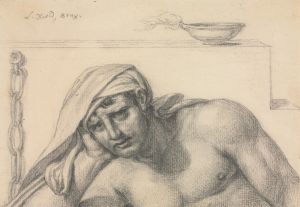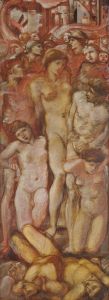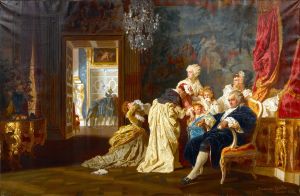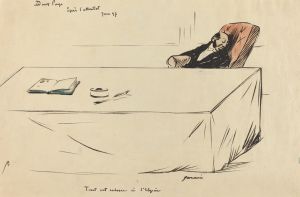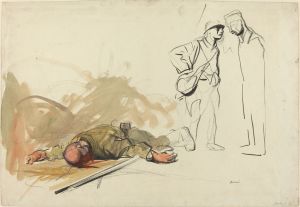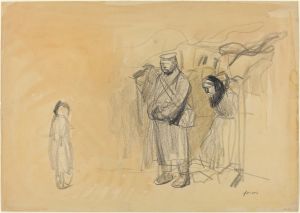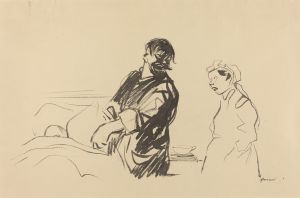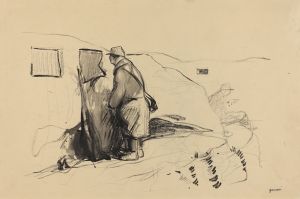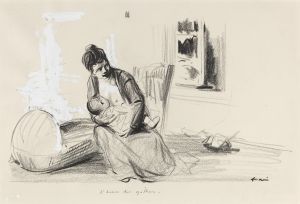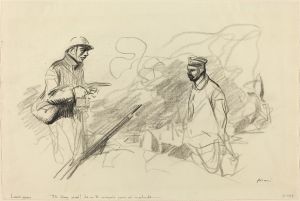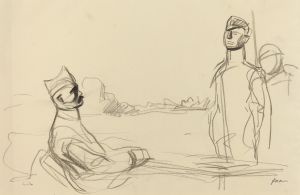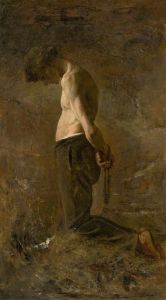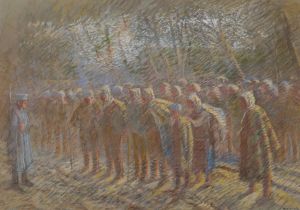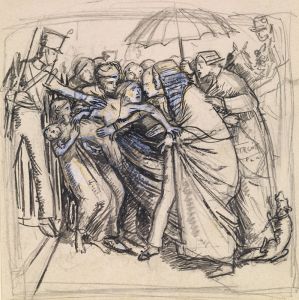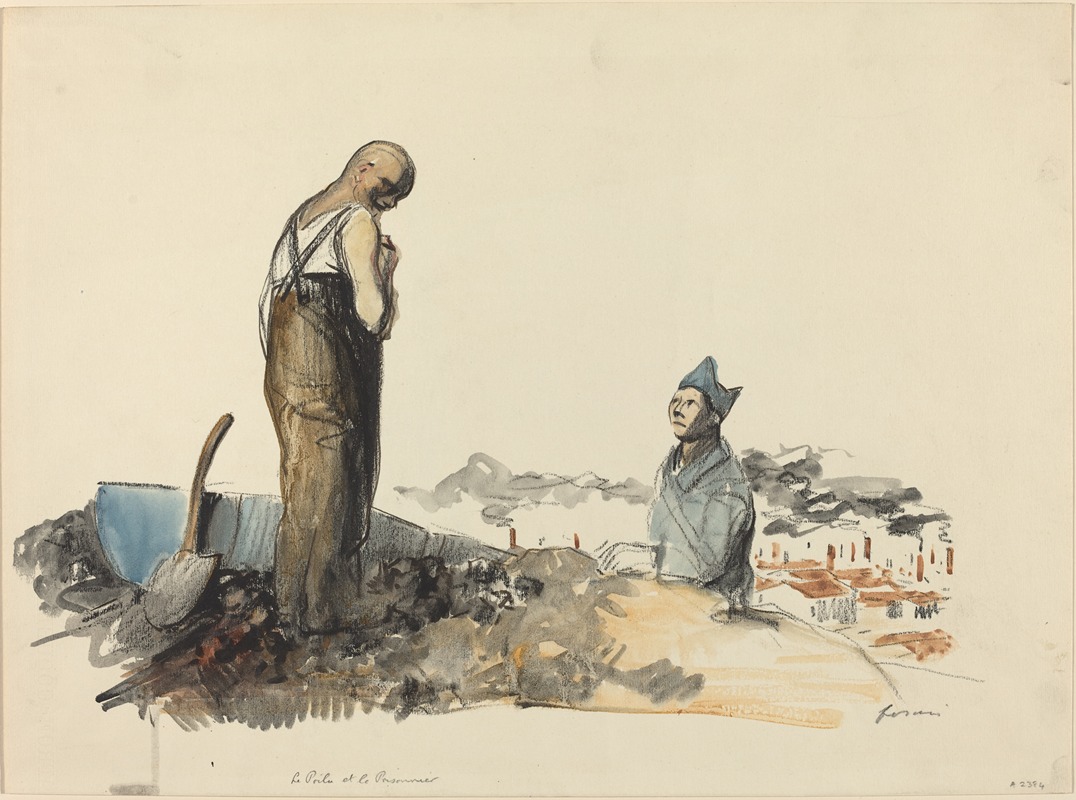
Poilu and Prisoner
A hand-painted replica of Jean-Louis Forain’s masterpiece Poilu and Prisoner, meticulously crafted by professional artists to capture the true essence of the original. Each piece is created with museum-quality canvas and rare mineral pigments, carefully painted by experienced artists with delicate brushstrokes and rich, layered colors to perfectly recreate the texture of the original artwork. Unlike machine-printed reproductions, this hand-painted version brings the painting to life, infused with the artist’s emotions and skill in every stroke. Whether for personal collection or home decoration, it instantly elevates the artistic atmosphere of any space.
Jean-Louis Forain's Poilu and Prisoner is a work of art created during the early 20th century, reflecting the artist's engagement with the themes of war and human experience. Jean-Louis Forain (1852–1931) was a French painter, illustrator, and printmaker known for his association with Impressionism and his later focus on social and political commentary. His works often depicted scenes of everyday life, as well as the realities of war and its impact on individuals.
The term "poilu" refers to French infantry soldiers during World War I, a nickname that translates to "hairy one" and was used affectionately to describe their rugged and enduring nature. The inclusion of a "prisoner" in the title suggests that the artwork portrays an interaction or encounter between a French soldier and a captured individual, possibly an enemy combatant. This subject matter aligns with Forain's interest in documenting the human dimensions of war, particularly the relationships and tensions between individuals on opposing sides.
Forain was deeply affected by World War I and contributed to the war effort through his art. He created numerous illustrations and works that captured the experiences of soldiers, civilians, and the broader societal impact of the conflict. His style during this period often combined realism with expressive, sketch-like qualities, emphasizing the emotional and psychological aspects of his subjects.
While specific details about Poilu and Prisoner are limited, the work is consistent with Forain's broader artistic focus during the war years. It likely reflects his commitment to portraying the humanity and complexity of wartime experiences, avoiding romanticized or overly idealized depictions. Forain's wartime art often served as a form of commentary, shedding light on the struggles and sacrifices of those involved in the conflict.
As with many of Forain's works, Poilu and Prisoner demonstrates his skill in capturing nuanced expressions and interactions, using a restrained color palette and dynamic compositions. His ability to convey emotion and narrative through minimalistic yet evocative techniques has been widely recognized.
Further research into the specific context and provenance of Poilu and Prisoner may provide additional insights into its creation and significance. However, based on available information, the painting stands as a testament to Forain's dedication to documenting the human side of war through his art.





